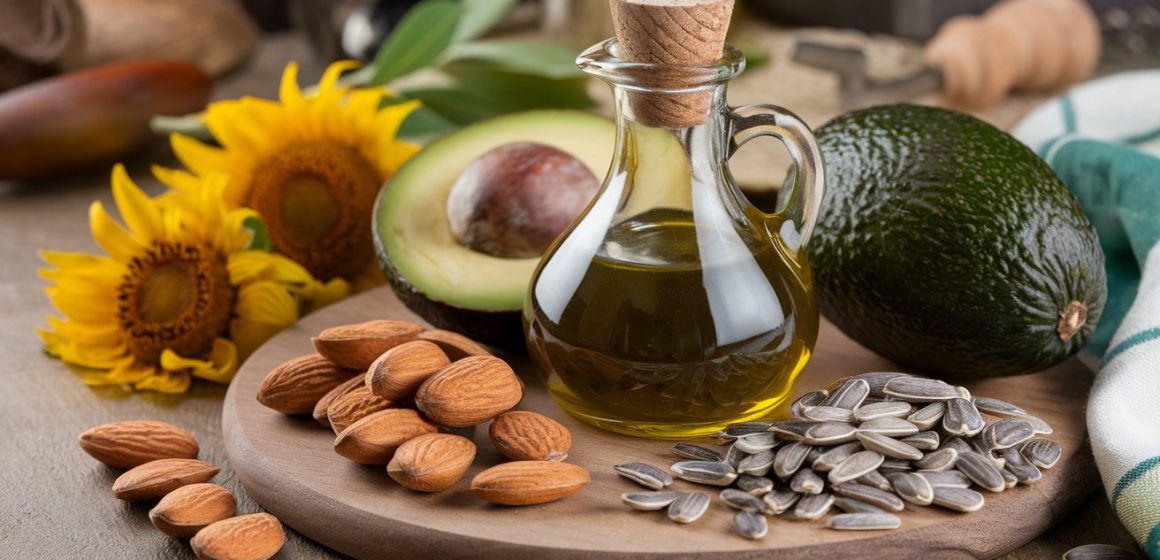Hey, foodies! 🍇🥑 Did you know there’s a powerful vitamin out there that not only keeps your skin glowing but also gives your immune system a big high five? It’s true! We’re talking about Vitamin E, a potent antioxidant that plays a crucial role in maintaining good health. It’s time to meet some of the most delicious foods that are packed with this fantastic nutrient. Let’s dive in!
Why is Vitamin E So Important?
Before we explore the delicious world of Vitamin E-rich foods, let’s delve into why this nutrient is so crucial for our well-being. Vitamin E acts as a powerful antioxidant, shielding our cells from damage caused by harmful free radicals. These free radicals are unstable molecules generated by our bodies during normal metabolic processes and exposure to environmental toxins like pollution and cigarette smoke.
By neutralizing these free radicals, Vitamin E helps protect us against chronic diseases such as heart disease, cancer, and Alzheimer’s disease. Additionally, Vitamin E plays a vital role in:
Boosting the immune system: It helps strengthen our body’s natural defense mechanisms, making us less susceptible to infections.
Maintaining healthy skin: It protects skin cells from sun damage, promotes wound healing, and contributes to a youthful complexion.
Supporting eye health: It protects against age-related macular degeneration and cataracts, two leading causes of vision loss.
Improving blood circulation: It prevents blood clots and improves blood flow, reducing the risk of heart attacks and strokes.
Sunflower Seeds: Tiny Treasures Bursting with Benefits 🌻
Let’s start with a true nutritional powerhouse – sunflower seeds! Don’t let their small size fool you; these tiny treasures are bursting with Vitamin E goodness. Just a single ounce (about a small handful) of sunflower seeds packs over 35% of your daily Vitamin E needs.
But the benefits of sunflower seeds go beyond just Vitamin E. They are also a fantastic source of:
Selenium: A trace mineral with antioxidant properties that work synergistically with Vitamin E.
Magnesium: Crucial for muscle function, nerve function, and blood sugar control.
Zinc: Important for immune function, wound healing, and cell growth.
Enjoy them on their own as a crunchy and satisfying snack, sprinkle them over salads for added texture and nutrition, or incorporate them into your trail mixes for an energy boost.
Almonds: The Nutty Nutrient Bomb That Fuels Your Day 🌰
Next on our list are almonds, the versatile and nutrient-packed nuts that deserve a permanent spot in your pantry. Just 23 almonds provide nearly half of your daily Vitamin E requirement! But the benefits don’t stop there. Almonds are also loaded with:
Healthy fats: Monounsaturated and polyunsaturated fats that contribute to heart health by lowering bad cholesterol levels.
Fiber: Promotes digestive health, helps regulate blood sugar levels, and keeps you feeling fuller for longer.
Protein: Essential for building and repairing tissues, and for maintaining healthy hair, skin, and nails.
Enjoy almonds as a convenient and healthy snack, incorporate them into your breakfast routine by adding them to your yogurt or oatmeal, or use them to create delicious homemade almond butter.
Hazelnuts: The Sophisticated Nut with a Hidden Talent 🌰
Often associated with decadent desserts and luxurious spreads, hazelnuts are much more than just a delicious treat. These subtly sweet and richly flavored nuts are also a fantastic source of Vitamin E, with one ounce providing a significant portion of your daily needs.
But the goodness doesn’t stop there. Hazelnuts are also rich in:
Copper: Essential for iron absorption, collagen formation, and maintaining healthy blood vessels.
Manganese: A trace mineral involved in bone formation, wound healing, and metabolism.
Antioxidants: Beyond Vitamin E, hazelnuts contain other potent antioxidants that protect against cell damage.
Enjoy hazelnuts on their own as a satisfying snack, add them to your trail mixes for a flavor and texture boost, or incorporate them into baked goods for a nutritious and delicious twist.
Wheat Germ Oil: The Concentrated Elixir of Vitamin E 🌾
Wheat germ oil is like liquid gold when it comes to Vitamin E! This nutrient-dense oil is derived from the germ of the wheat kernel, the most nutrient-rich part of the grain. Just a single tablespoon of wheat germ oil delivers a whopping 100% of your daily Vitamin E needs!
Apart from its impressive Vitamin E content, wheat germ oil is also a good source of:
Vitamin B complex: Essential for energy production, nerve function, and cell metabolism.
Octacosanol: A fatty alcohol that may improve athletic performance and reduce muscle fatigue.
Phytosterols: Plant compounds that can help lower cholesterol levels.
Due to its concentrated nature and slightly nutty flavor, it’s best to use wheat germ oil in moderation. Drizzle it over salads, blend it into smoothies, or use it to finish off your favorite soups or veggie dishes.
Sunflower Oil: A Versatile Cooking Oil with a Vitamin E Bonus 🍳
Sunflower oil isn’t just a staple in the kitchen; it’s also a sneaky way to add more Vitamin E to your diet. A single tablespoon of this mild-flavored and versatile oil provides a significant amount of your daily Vitamin E requirement.
When choosing sunflower oil, opt for the high-oleic variety, which is rich in heart-healthy monounsaturated fats.
Use sunflower oil for sautéing, baking, and even light frying. It’s also a great addition to homemade salad dressings and marinades.
Spinach: The Leafy Green Powerhouse Packed with Nutrients 🥗
Popeye was definitely onto something with his love for spinach! This leafy green powerhouse is not only an excellent source of iron, but it also boasts a healthy dose of Vitamin E.
In addition to its Vitamin E and iron content, spinach is packed with:
Vitamin K: Crucial for blood clotting and bone health.
Vitamin A: Essential for vision, skin health, and immune function.
Folate: Important for cell growth and development, especially during pregnancy.
Enjoy spinach in countless ways! Blend it into smoothies for a nutritional boost, sauté it with garlic for a simple yet flavorful side dish, incorporate it into salads for added texture and vitamins, or add it to sandwiches and wraps for a nutritious kick.
Avocado: The Creamy Fruit that Nourishes from the Inside Out 🥑
Avocados have earned their rightful place as a nutritional superstar, and their Vitamin E content is just one reason why. These creamy and delicious fruits provide a good amount of Vitamin E per serving, along with a wealth of other beneficial nutrients.
Avocados are also an excellent source of:
Healthy fats: Primarily monounsaturated fats, which contribute to heart health and satiety.
Potassium: An electrolyte essential for maintaining fluid balance, regulating blood pressure, and supporting muscle function.
Fiber: Promotes digestive health, regulates blood sugar levels, and aids in weight management.
Enjoy avocados in countless ways: spread them on toast for a quick and nutritious breakfast, incorporate them into salads for a creamy and satisfying element, use them to make guacamole, or add them to smoothies for a creamy texture and nutritional boost.
Broccoli: The Cruciferous Champion with a Vitamin E Surprise 🥦
Broccoli often gets overlooked as a nutritional powerhouse, but this cruciferous vegetable packs a powerful punch, including a respectable amount of Vitamin E.
But broccoli’s benefits don’t stop there. It’s also an excellent source of:
Vitamin C: A potent antioxidant that supports immune function, collagen production, and wound healing.
Fiber: Promotes digestive health, regulates blood sugar levels, and aids in weight management.
Sulforaphane: A powerful compound linked to cancer prevention and improved brain health.
Enjoy broccoli steamed, roasted, stir-fried, or even raw. Get creative and incorporate this versatile vegetable into your favorite dishes for a nutritional boost.
Recommended Daily Intake of Vitamin E: Fuel Your Body with This Essential Nutrient
Now that you know about all the amazing foods packed with Vitamin E, you might be wondering how much you actually need. For most adults, the recommended daily intake of Vitamin E is 15 mg (or about 22.4 IU).
Pregnant and breastfeeding women may need slightly higher amounts of Vitamin E to support their increased needs. It’s always best to consult with your healthcare provider to determine the appropriate Vitamin E intake for your individual needs.
By incorporating a variety of these Vitamin E-rich foods into your diet, you’ll be well on your way to reaching your daily requirements and reaping the numerous health benefits this powerful antioxidant provides.

